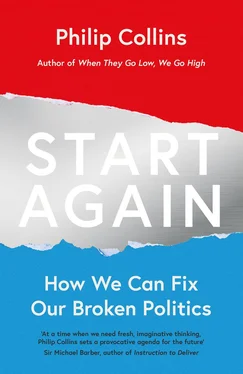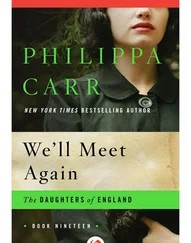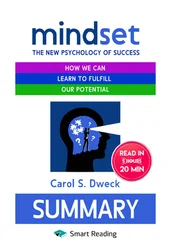The rest of the book seeks to answer those questions. It will set out the principles and the policies to design what I shall call the new common wealth of Great Britain. This is an idea with a deep heritage in the best of the various traditions of British political thought but it melds them to form something new. The common wealth will put an enterprising economy at the service of an open society to create a liberal democracy of which we can be proud.
The fundamental fact of recent British politics is that the average British worker has not had a pay rise for a decade. This has bled into a more general critique of modern capitalism and its unfair and unequal distribution of rewards. In chapter 2, ‘The Common Wealth’, I return to the origins of modern capitalism in the public obligation of the corporate enterprise. An economy in which the fruits are more evenly spread is, I argue, not only a present-day necessity, it is also a way of honouring the history of capitalism and therefore of protecting an open economy against its enemies. This will require a system of taxation which is based on principles of desert and earned income.
The next task is to manage the same recuperation for the reputation of politics. The advertised and formidable benefits of democracy are that people are granted sovereign power and that their world gets better. The two virtues are linked at the deepest level. The world improves, in part, because people feel a sense of agency. However, British politics has fallen into a rut in which neither of these two benefits are accruing. The purpose of chapter 3, ‘The Liberal Democracy’, is therefore to describe a state apparatus that can both command widespread popular assent and start, once again, to work efficiently on behalf of the citizen body. This will mean, in one of the most centralised states in the democratic world, that power will need to be deployed at a far lower level. It is often noted that the people no longer have much trust in politicians. This is true, but not as telling as it sounds. The far greater problem is that politicians have not trusted the people.
The relationship between the citizen and the state is enacted in the public services. The ways we educate our children, treat our sick or care for our needy are not just important transactions in which we exchange vital goods. The organisational choices and spending priorities that we make are ways to embody an idea of who we are. The ethos of public service which informs our public relationships with one another defines a public realm. In chapter 4, ‘Power Failure’, I set out the principles of control, capability, prevention and contribution that should govern the way we provide vital services.
We live a life in common with others when we meet in public places but to live in common with other people is also an act of imagination. When there is an identity between the country we hold in our minds and the country we hold in prospect, then that nation is likely to be content. Division is inevitable in the sense that a democracy will always be home to plural views. These views have to be settled, though, in a civil way, and that entails agreement on certain basic rules and structures. When the claims of particular identities are too strong, common life gets pulled apart. In chapter 5, ‘The Open Society’, I will describe the nation that we should want Britain to be, a conception of a country that asks neither too much nor too little of any of its citizens of many faiths and many cultures.
These five chapters seek to define and then answer the questions that will determine the next phase of Britain’s course as a nation. It sketches a new common wealth for Britain. Throughout the book there runs an assumption that the nation needs a jolt, an electric surge to galvanise its politics. It is drifting into a position that shuts it away from the world. Unsure of its place and its status, an old country is in danger of fading from view. Neither of the two main political parties has any inkling of how to stop this slow dissolve. The Conservative party has fallen into Peel’s chasm between open trade and a closed nation. The Labour party has retreated into its nostrum that all the deficiencies of public services can be met by spending the money it has no idea how it can raise.
Above and beyond the two dominant parties, a large tract of political ground lies unoccupied. A band of political orphans has been created. These are the people to whom and for whom this book purports to speak. Half the electorate say that no party speaks for them and that they would consider switching their vote if there were a credible third option available. More than that say no party speaks for them. These political orphans come from all strata of society and all age groups. They lean both to the right and to the left, though none too far. Their sense of lacking a home is itself an indictment of the recent conduct of British politics. The archaic and undignified British constitution is cracking. Power is hoarded by a distant and unresponsive centre and local outposts, despite the few recent innovations of mayoralties, remain vestigial and weak. This is a political dispensation in which neither of the two advertised virtues arrives as stated. Neither agency nor benefits are in evidence. It is surely time for us to start again.
Конец ознакомительного фрагмента.
Текст предоставлен ООО «ЛитРес».
Прочитайте эту книгу целиком, купив полную легальную версию на ЛитРес.
Безопасно оплатить книгу можно банковской картой Visa, MasterCard, Maestro, со счета мобильного телефона, с платежного терминала, в салоне МТС или Связной, через PayPal, WebMoney, Яндекс.Деньги, QIWI Кошелек, бонусными картами или другим удобным Вам способом.












